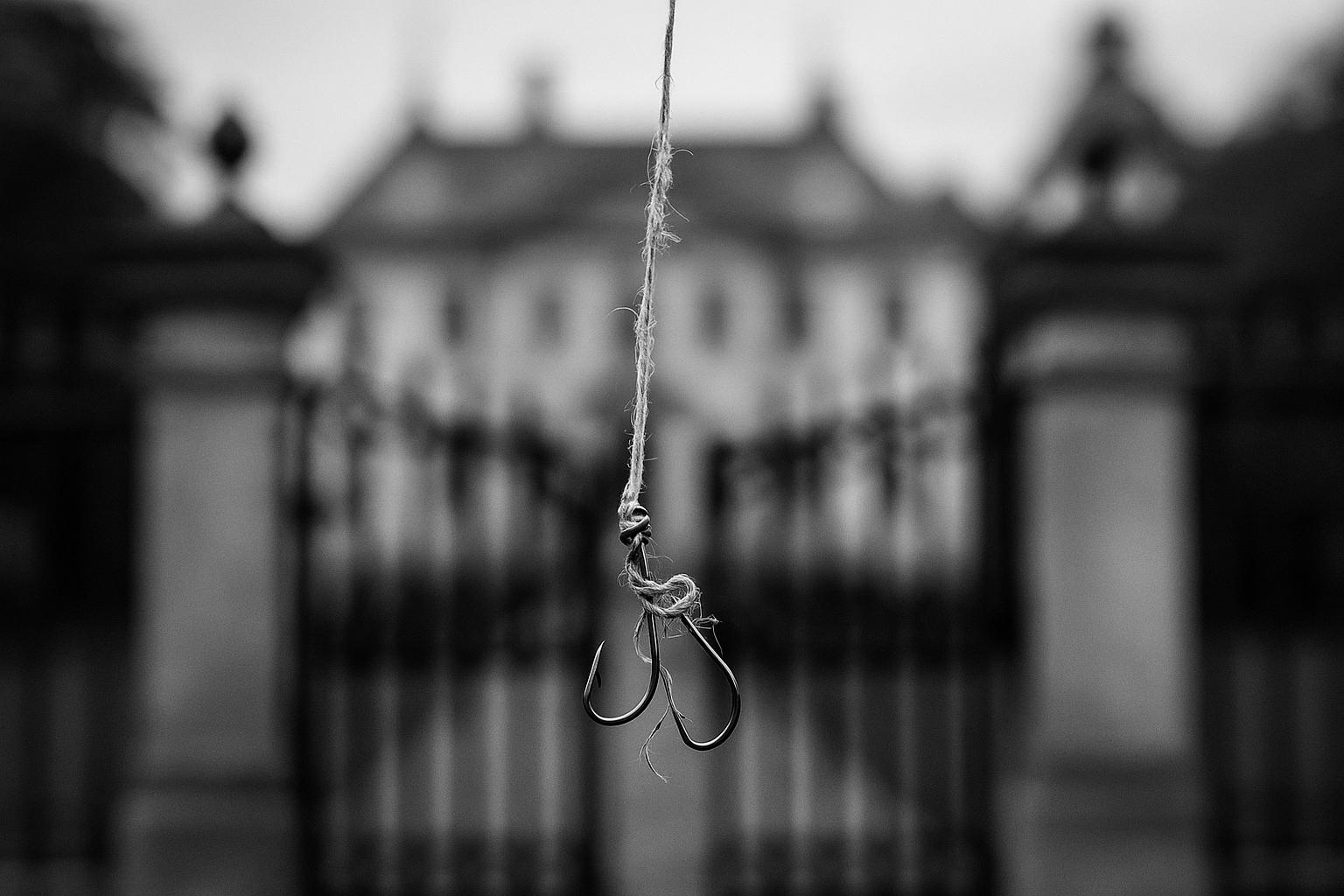US Vice‑President J.D. Vance’s visit to Britain this week crystallised a familiar diplomatic tension: warm, informal encounters at the highest level sitting uneasily alongside sharp policy differences. According to front‑page coverage, Mr Vance met Foreign Secretary David Lammy at Chevening, and — as the BBC reported on its front pages — warned the UK to think carefully before moving to recognise a Palestinian state, saying “I don’t know what that would mean”. AP News added that Vance told reporters at Chevening the United States had “no plans” to recognise a Palestinian state, citing concerns about governance and security in Gaza.
The optics of the trip underlined the breadth of the relationship even as it exposed that divergence. The Times carried a cheery photograph of the two men fishing together at Chevening House, an unusually informal image for contemporaneous negotiations on Gaza and Ukraine; AP noted the meeting covered Gaza, the war in Ukraine and wider bilateral cooperation. The picture of congeniality served to remind readers that personal diplomacy remains an important channel even when capitals disagree on policy.
The substance of Mr Vance’s warning was practical as much as political. AP’s reporting framed his comments around immediate governance and security questions in Gaza and the difficulty of defining what recognition of statehood would actually imply on the ground; the BBC’s front‑page summary emphasised his scepticism about the consequences of unilateral recognition. That policy divergence has not collapsed the US‑UK relationship, but it has put an awkward spotlight on how two close partners can publicly disagree while seeking to coordinate on other strategic priorities.
Away from Westminster, Britain’s front pages reflected domestic anxieties. The Sun ran a striking headline about alleged internal security breaches at a major concert: it reported an investigation into what it said were hundreds of ticketless Oasis fans who had been smuggled into a reunion show, with claims some were asked to pay as much as £350 to gain entry through a disabled access point. Bank data analysed by Lloyds — reported by the Guardian — suggests the broader problem of Oasis‑related ticket fraud has cost fans more than £2 million, with average losses of roughly £436 and many scams originating in social‑media adverts and fake listings. Consumer groups warned that high demand and unofficial resale markets create fertile ground for fraud and urged buyers to stick to authorised sellers and protected payment methods.
Grief and calls for greater school security also featured prominently. The parents of 15‑year‑old Harvey Willgoose — who was fatally stabbed at All Saints Catholic High School in Sheffield in February — have made a public plea for airport‑style metal‑detecting arches in secondary schools, the BBC reported. They have met local officials as an inquest opened and criminal proceedings continue; officials say decisions on school security rest with individual schools and local authorities, but the episode has added momentum to a national debate on knife crime and pupil safety.
Not all mistaken alarms are criminal in intent: a high‑profile false alarm off the Norfolk coast saw former Reform MP Rupert Lowe alert the coastguard to what he described as a potential migrant dinghy, only for the vessel to turn out to be a four‑person charity rowing crew raising funds for motor neurone disease. Sky News reported that the rowers were contacted and confirmed their identity; Mr Lowe described the incident as a false alarm, defended his vigilance given the sensitivity of small‑boat crossings, and pledged a donation to the charity. The episode highlights the volatility of public reaction to Channel migration and the reputational risks for politicians who share images before full verification.
A separate free‑speech row appeared on the front pages after police reportedly told a shopkeeper to remove a sign that called shoplifters “scumbags” because it could cause offence, an item led by the Daily Telegraph. The paper said the incident prompted criticism from the shadow home secretary, who described the advice as “madness”; the episode fed into broader arguments about policing, community standards and what constitutes lawful expression.
On the markets and trade front, financiers and officials scrambled to contain a ripple effect from a technical customs ruling. The Financial Times led coverage of US moves to calm turmoil in the gold market after a U.S. Customs and Border Protection classification suggested one‑kilogram and 100‑ounce bars might attract country‑specific import duties — a change that briefly sent U.S. gold futures to record highs. Reuters reported that the White House planned to clarify the apparent confusion after refiners paused shipments amid fears of a punitive 39% tariff on certain Swiss refined bars; the episode exposed how arcane tariff codes can produce outsized market volatility and prompted hopes that a swift clarification would restore normal bullion flows.
Taken together, the papers presented a Britain and a world where high diplomacy, domestic safety debates, consumer fraud and global market technicalities all jostle for attention. The Chevening meeting between Mr Vance and Mr Lammy may have been photographed over a rod and line, but the policy lines being cast — on Gaza, on trade and on domestic security — carry far heavier hooks.
📌 Reference Map:
##Reference Map:
- Paragraph 1 – [1], [2], [3]
- Paragraph 2 – [3], [2], [1]
- Paragraph 3 – [2], [1]
- Paragraph 4 – [4], [1]
- Paragraph 5 – [5], [1]
- Paragraph 6 – [6], [1]
- Paragraph 7 – [1]
- Paragraph 8 – [7], [1]
- Paragraph 9 – [1], [2]
Source: Noah Wire Services
